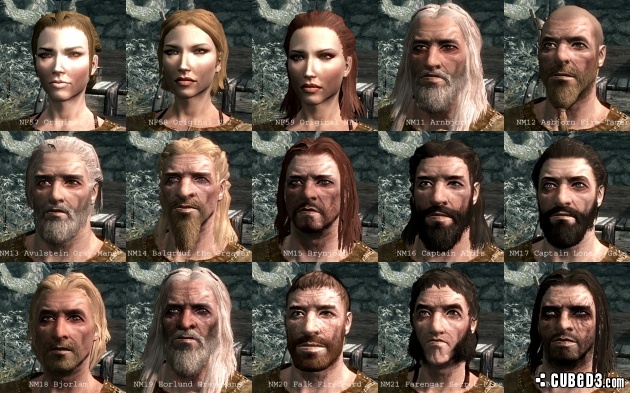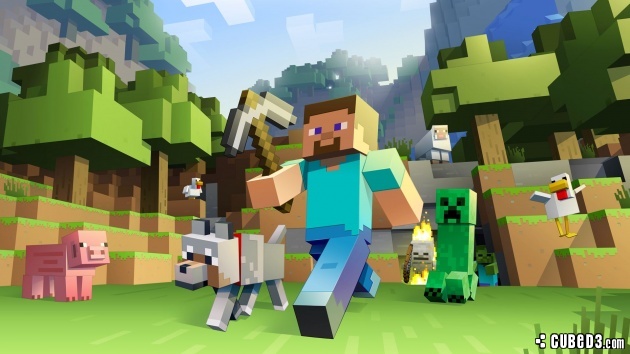
Okay, that sounds simple enough, just making the player feel emotionally attached to a game. However, it isn't that simple. If it was then every developer would do it, everyone practising any art would do it all the time. Exactly what is it that makes us attached to a game, though? Exactly what is it that makes us pick something up year after year, even though we've played it through dozens of times? Why do we buy remakes such as The Legend of Zelda: Majora's Mask 3D even though we know the original inside out already? What is the secret to create such a strong bond with the player? There are several ways that developers can do this, and below the four most common will be discussed, along with their pros and cons and what makes them push people into actually emotionally investing in a game.
Emotional Investment?
The first, and most direct, way to make a player connect emotionally to a game is through storytelling. This has been done since ancient times with theatre, books, movies, and so on. This plays directly at our emotions for the characters in question and makes the experience feel personal by having characters the player can relate to and feel with. Many of my personal favourite games are my favourites simply because there are one or many characters that I feel very strongly connected with, not unusually crying for them.While this is an extremely powerful and direct tool to make the player invest emotionally into a game and make it an unforgettable experience, it is somewhat of a double-edged sword. The main issue here is that while someone might love a character to death, that very same character might not invoke strong feelings within the majority of the customer base, or in the worst case, be a strong annoyance to people and might very well make a large portion of the potential customers not buy the game at all because of that character. It is worth keeping in mind that this kind of game is not likely to sell very well, but it will still most likely reach classic or cult status within its fan base. Equally as hard for the average designer to create is a great art itself. For these reasons, this is often only pulled out within cheap to develop genres such as JRPGs and Visual Novels, where people that are better at storytelling, but worse at other aspects, will shine. A strong positive here is that these genres are built to enhance and play on this experience, but there is very seldom a big blockbuster such as the Call of Duty series that is going to play this trick to make a name for itself.

Another trick that is really old within the gaming industry, and mostly solely used there, is to make the game very difficult to beat. How is that going to make a player invest emotionally? It is very simple. By a feel of rage, accomplishment, and the bragging rights of having beaten a hard challenge few have mastered. This is, just like in the case of storytelling, a double-edged blade due to the fact that many gamers are very sensitive to the rage a high difficulty might offer, which makes them never ever play that game again. A modern example is the Dark Souls titles. While many love these games for their difficulty and the boasting that mastery of them brings, there are also very many that do not even touch them because they do not want to experience failing over and over again.
The final nail in the coffin for high scores to help achieve emotional investment from a big audience is that online gaming and scoreboards have replaced local arcade halls. The issue is that while someone might have been a big guy in their local circles, they are very unlikely to deliver a good high score in the wider scope that the Internet offers, hence the bragging rights for most players will also vanish altogether, and there will be nothing to attach pride on to other than a very small portion of gamers and that will leave almost everyone else outside.

Competitive multiplayer modes are another way of making players invest emotionally in a game, taking the place of tough difficulty levels in the hearts of those that love to boast about their achievements, never wanting to back down from an adrenaline pumping challenge. With the rise of the Internet, challengers of a similar class are never far away and online rankings will make every game matter thanks to a desire to climb up to be amongst the best of the best. This way of making people pour more into games plays on many of the same aspects as the difficulty levels of old did, except in a very different way. The biggest game changer here is the fact that the better players are, the greater the achievement is - something that was not the case before. If Contra was easy and everyone could beat it without the Konami code, there would be no point in doing it. However, within these games, the bragging rights were highly dependent on a large number of competitive players.

Here the weakness of this way of getting players emotionally invested in a game is discovered - the product simply has to be the best at what it does, or at least good enough for many people to actually play it. If this is not true, it does not matter if it has a very finely tuned multiplayer aspect or not, there is nobody worth beating, or worse yet, nobody at all to beat. There's also the issue of constantly balancing the game to make it fit for a competitive environment. While there will always be differences, unless everything is just the same within the game, it is fatal to a competitive title if an extremely cheap trick to win that everyone can execute exists. It kills off the challenge for the thrill-seekers and makes it a case of who does 'that thing' first. This means that to stay relevant, constant maintenance is extremely important, and this might get very pricy for a developer, hence this is usually just attempted by bigger businesses.
The final way of making a player invest emotionally in a game is personal customisation - something that might very well be the one that universally works best and is becoming more and more common in gaming today. Personal customisation plays at the creative heart of the gamer. By pushing them to make meaningful choices, people can make the game and world within their own. This takes many forms, with everything from world construction in Minecraft to choices in titles such as The Elder Scrolls V: Skyrim. By making the player put their personal touch on the game, it ensures that they will care about and nurture it.
The drawback here, though, is that to make this work well, a lot of resources might be needed. In a game like The Elder Scrolls V: Skyrim, it is of highest importance that each choice made affects the world, but at the same time does not create a logical syntax error within the coding. This can easily cause nasty bugs to appear that, in the worst case, might lead to unwinnable games if not play-tested sufficiently before release. However, when done correctly, this will appeal to an extremely wide range of gamers.

Just because a game has these aspects, however, it will not instantly become a classic. These are just some things that usually exist. To turn into a classic, there must also be a very good core, and the tools to create emotional attachments must be used correctly to something that stands out in the forest of titles out there. One big mistake many developers do is to simply copy what has already been done. While this might very well ensure a game will sell better, it is something that will prevent the final product from being remembered fondly. A great example of this is the later Call of Duty titles. Call of Duty: Modern Warfare is a great classic within the genre, changing the landscape with its gameplay and has strongly affected the way people play first-person shooters today. While this is true, Call of Duty: Modern Warfare 3 has the same status. Since this uses the same tools, it does not feel like it is the third entry that is doing well, but still the games before it, leading to nobody claiming it has reached that 'classic' status.
A series has to evolve to keep itself fresh and make people feel invested. Not only does Call of Duty suffer from this, but many other great franchises as well, such as Pokémon and Zelda, as some would say they have grown stale over the years. For some, the last Zelda that most felt strongly about was The Legend of Zelda: Majora's Mask because after that, the series has played on the same formula over and over again, which prevents it from feeling like it's been made for the player.
While most concepts are already drained, there is still hope. New technology will make it possible for developers to create games never seen before, and creative minds entering the industry will ensure that there will be new things to look forward to for years to come. The optimal game for catching a player's emotional interest and making them invest time and effort would be a living MMO world in which each player is given their own area to do what they want with and create what they want, and a big outside world with hefty lore that is built around personalised characters as they do big things in the game. Creating a living role playing world where everything might happen and the players' actions determine the fate of the world and how the world will evolve is one ideal example of a solution. This game might be decades from release as current technology possibly could not recreate the idea, but this might very well be the classic of the future - the game the future generation will be remembered by.

What game from the 2010s will be remembered further down the line? Looking back twenty years from now, it will not be Call of Duty, nor will it be the Batman Arkham games that are so highly praised. Minecraft is a possibility, most likely setting the standard for the future of emotional investment in gaming. Personally, Visual Novels also set the standard. Albeit a very old genre, it is one that has a lot to share in terms of great storytelling, character development, and personal choices. Games that made players invest hundreds of hours into them just out of sheer emotional attachment to the worlds within and the stories created by themselves.

 Sign In
Sign In 17.05.2015
17.05.2015  JayUK
JayUK 
 Link to this post:
Link to this post:  Subscribe to this topic
Subscribe to this topic Features
Features






 Top
Top

